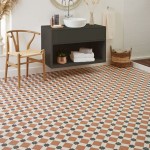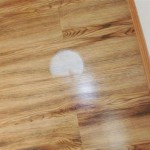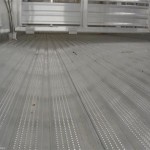Understanding Wood Flooring Adhesive: Types, Applications, and Selection
Wood flooring adhesive is a critical component in the successful installation of hardwood, engineered wood, and bamboo flooring. It functions as the bonding agent between the flooring material and the subfloor, ensuring a stable, secure, and long-lasting flooring system. Selecting the appropriate adhesive for a specific project depends on several factors, including the type of flooring, the subfloor material, environmental conditions, and desired performance characteristics.
The primary role of wood flooring adhesive is to create a strong and durable bond that resists movement, prevents squeaking, and contributes to the overall structural integrity of the floor. A properly selected and applied adhesive will also help to minimize the impact of moisture and temperature fluctuations on the flooring, thereby extending its lifespan. Conversely, an incorrect or poorly applied adhesive can lead to a range of problems, including bond failure, cupping, gapping, and premature deterioration of the flooring material.
Wood flooring adhesives are available in a variety of formulations, each with unique properties and application requirements. Understanding the characteristics of these different types of adhesives is essential for making an informed decision and achieving optimal results. This article provides a comprehensive overview of wood flooring adhesives, covering their types, applications, selection criteria, and best practices for installation.
Types of Wood Flooring Adhesives
The market offers a diverse array of wood flooring adhesives, each formulated with specific chemical compositions and designed for particular applications. The most common types include polyurethane adhesives, modified silane polymer (MSP) adhesives, acrylic latex adhesives, and epoxy-based adhesives. Each type possesses distinct advantages and disadvantages regarding bonding strength, moisture resistance, flexibility, and environmental impact.
Polyurethane Adhesives: These adhesives are known for their exceptional bonding strength and water resistance. They are generally used for installing solid hardwood flooring and engineered wood flooring, particularly in areas prone to moisture exposure, such as basements and bathrooms. Polyurethane adhesives cure through a chemical reaction, forming a rigid and durable bond. They are available in various formulations, including moisture-cure and two-component systems. Moisture-cure polyurethane adhesives react with moisture in the air to initiate the curing process, while two-component systems require mixing two separate components before application.
One of the key benefits of polyurethane adhesives is their ability to accommodate slight subfloor irregularities. Their rigid nature allows them to bridge minor gaps and imperfections, providing a stable and even surface for the flooring. However, polyurethane adhesives can be more expensive than other types, and they may require specialized application tools and techniques. They also tend to have a longer curing time, which can extend the overall installation process.
Modified Silane Polymer (MSP) Adhesives: MSP adhesives, also known as silane-modified polymer adhesives or hybrid adhesives, represent a newer generation of wood flooring adhesives. They combine the advantages of polyurethane and acrylic latex adhesives, offering excellent bonding strength, flexibility, and moisture resistance. MSP adhesives are typically solvent-free and low in volatile organic compounds (VOCs), making them a more environmentally friendly option. They are suitable for installing a wide range of flooring types, including solid hardwood, engineered wood, bamboo, and cork.
The flexibility of MSP adhesives allows them to accommodate movement in the subfloor and the flooring material, reducing the risk of cracking or bond failure. They also provide excellent sound dampening properties, which can help to minimize noise transmission through the floor. MSP adhesives are generally more expensive than acrylic latex adhesives, but their superior performance and environmental benefits often justify the higher cost. They typically have a faster curing time than polyurethane adhesives, which can expedite the installation process.
Acrylic Latex Adhesives: These adhesives are water-based and offer a cost-effective option for installing engineered wood flooring, parquet flooring, and some types of solid hardwood flooring. Acrylic latex adhesives are easy to apply and clean up, making them a popular choice for DIY projects. They are also low in VOCs, contributing to improved indoor air quality. However, acrylic latex adhesives are generally less resistant to moisture and temperature fluctuations than polyurethane and MSP adhesives. They are best suited for installations in dry, stable environments.
The bond strength of acrylic latex adhesives is typically lower than that of polyurethane and MSP adhesives, which may limit their suitability for certain applications. They are also more prone to shrinkage during the curing process, particularly in dry conditions. This shrinkage can lead to gaps between the flooring and the subfloor, affecting the stability and appearance of the finished floor. Proper surface preparation and adherence to the manufacturer's recommendations are crucial when using acrylic latex adhesives.
Epoxy-Based Adhesives: Epoxy-based adhesives are characterized by their exceptional strength, chemical resistance, and durability. These adhesives are typically used in demanding applications where high bond strength and resistance to harsh conditions are required. While not as common as other types of wood flooring adhesives, epoxy-based formulations are sometimes employed for specialized projects, such as installing wood flooring in commercial or industrial settings. They generally consist of two components that must be mixed together before application, initiating a chemical reaction that results in a rigid and highly durable bond.
Epoxy-based adhesives are known for their ability to bond to a wide range of materials, including concrete, metal, and wood. They are also highly resistant to moisture, solvents, and extreme temperatures. However, epoxy-based adhesives can be more difficult to work with than other types, requiring precise mixing and application techniques. They also tend to have a longer curing time and may emit strong odors during the curing process. Their higher cost and complex application procedures typically limit their use to specialized projects.
Key Considerations for Adhesive Selection
Choosing the right wood flooring adhesive requires careful consideration of several factors to ensure optimal performance and longevity. These factors include the type of flooring being installed, the subfloor material, environmental conditions, the desired level of moisture resistance, and the installer's experience and preferences.
Type of Flooring: The type of flooring being installed is a primary factor in determining the appropriate adhesive. Solid hardwood flooring generally requires a high-strength adhesive that can withstand the dimensional changes associated with variations in humidity. Polyurethane and MSP adhesives are often the preferred choices for solid hardwood installations. Engineered wood flooring, on the other hand, is typically more stable than solid hardwood and can be installed with a wider range of adhesives, including acrylic latex, polyurethane, and MSP formulations. Bamboo flooring, which is known for its hardness and density, may require a specialized adhesive designed for use with bamboo materials. Cork flooring, due to its porous nature, often benefits from an adhesive with good initial tack and flexibility. Adhering to the flooring manufacturer's recommendations regarding adhesive selection is essential for maintaining the warranty and ensuring satisfactory performance.
Subfloor Material: The subfloor material plays a critical role in adhesive selection. Common subfloor materials include concrete, plywood, oriented strand board (OSB), and existing flooring surfaces. Concrete subfloors require adhesives that are compatible with concrete and can withstand the alkalinity and moisture content of the concrete. Plywood and OSB subfloors are generally more absorbent than concrete and may require the use of a primer or sealant to improve adhesive bond. When installing flooring over an existing flooring surface, it is important to ensure that the existing flooring is clean, level, and structurally sound. Compatibility of the adhesive with the existing flooring material should also be verified. In some cases, a self-leveling compound may be needed to create a smooth and even surface before applying the adhesive.
Environmental Conditions: Environmental conditions, such as temperature and humidity, can significantly impact the performance of wood flooring adhesives. High humidity levels can increase the moisture content of the flooring and the subfloor, potentially affecting the adhesive bond. In areas with high humidity, moisture-resistant adhesives, such as polyurethane and MSP adhesives, are recommended. Temperature fluctuations can also cause the flooring and the subfloor to expand and contract, placing stress on the adhesive bond. Flexible adhesives, such as MSP adhesives, can better accommodate these dimensional changes. It is also important to consider the indoor air quality requirements of the building. Low-VOC adhesives are preferred in environments where indoor air quality is a concern, such as schools, hospitals, and homes with sensitive occupants.
Best Practices for Adhesive Application
Proper adhesive application is crucial for achieving a successful and long-lasting wood flooring installation. Adhering to the manufacturer's recommendations regarding surface preparation, adhesive application techniques, and curing times is essential for preventing problems such as bond failure, cupping, and gapping.
Surface Preparation: Proper surface preparation is paramount for ensuring a strong and durable bond between the flooring and the subfloor. The subfloor should be clean, dry, level, and structurally sound. Any loose debris, dirt, dust, or contaminants should be removed by sweeping, vacuuming, or scraping. Cracks, holes, and uneven areas should be repaired with a suitable patching compound or self-leveling material. Moisture levels in the subfloor should be checked using a moisture meter to ensure that they are within the acceptable range specified by the flooring and adhesive manufacturers. A primer or sealant may be required to improve adhesion, particularly on porous or dusty surfaces. Following the manufacturer's recommendations for surface preparation is crucial for maximizing adhesive performance.
Adhesive Application: The adhesive should be applied evenly and consistently using the recommended trowel size and notch pattern. The trowel size and notch pattern determine the amount of adhesive that is applied to the subfloor and the resulting bond strength. Using the wrong trowel size or notch pattern can lead to insufficient or excessive adhesive application, which can compromise the bond. The adhesive should be spread in a direction perpendicular to the direction of the flooring planks. The open time of the adhesive, which is the amount of time that the adhesive can be exposed to air before the flooring is installed, should be carefully monitored. Exceeding the open time can result in a weakened bond. Only apply adhesive to an area that can be covered with flooring within the specified open time.
Curing and Clean-Up: The adhesive should be allowed to cure fully according to the manufacturer's instructions before allowing foot traffic or placing furniture on the floor. The curing time can vary depending on the type of adhesive, the temperature, and the humidity level. During the curing process, it is important to maintain adequate ventilation to allow the adhesive to dry properly. Any excess adhesive should be cleaned up immediately using a solvent recommended by the manufacturer. Avoid using harsh chemicals or abrasive cleaners that could damage the flooring. Protect the newly installed floor from moisture and direct sunlight during the curing period. Following the manufacturer's instructions for curing and clean-up will help to ensure a successful and durable flooring installation.

Best Adhesive For Hardwood Parquet Flooring Over Plywood Sfk

Floor Adhesives Glue Everbuild

Hardwood Floor Adhesive Wall And Bostik Global

The Right Wood Floor Adhesive For Job Trends Installation

What Is Flexible Flooring Adhesive Ambience Hardwood

Parquet Flooring Adhesive

Soudal Parquet Flooring Adhesive 5kg Diy At B Q

What Are The Main Types Of Wood Flooring Adhesives Esb

The Science Behind Wood Floor Adhesives

China Factory Eco Friendly Timber Wood Flooring Pu Bonding Adhesive Made In Com








